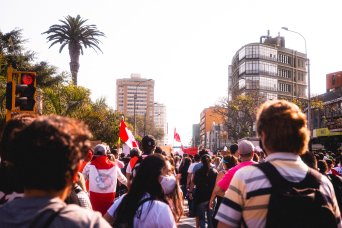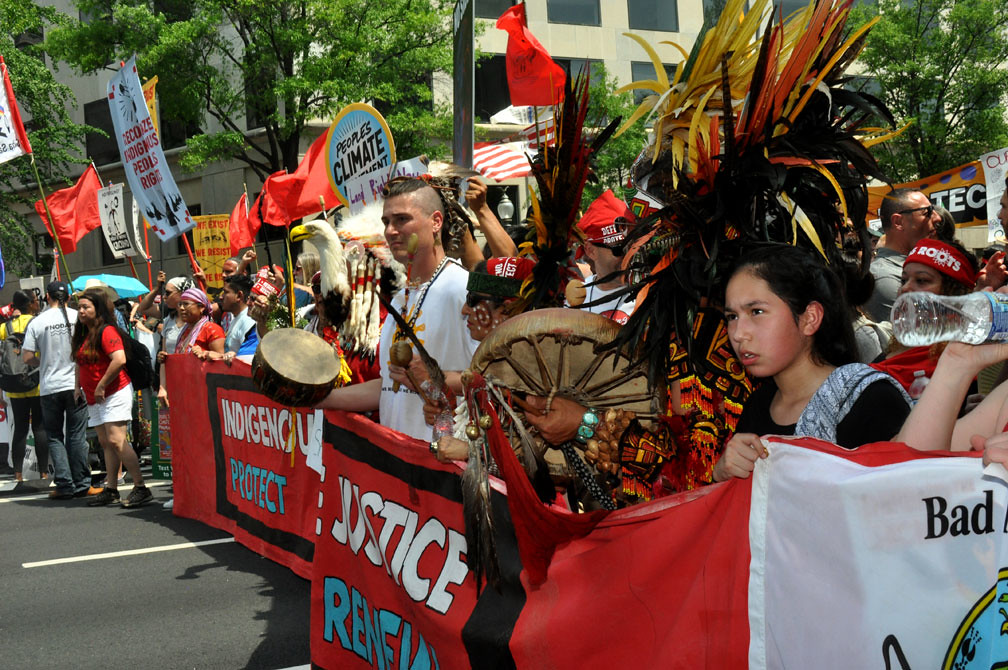- About
- Topics
- Picks
- Audio
- Story
- In-Depth
- Opinion
- News
- Donate
- Signup for our newsletterOur Editors' Best Picks.Send
Read, Debate: Engage.
| topic: | Political violence |
|---|---|
| located: | Peru |
| editor: | Ellen Nemitz |
On 7 December, 2022, the short story of a teacher and union leader rising to become president of Peru came to an unforeseeable end: Pedro Castillo is currently under investigation by the country’s Public Prosecutor's Office after attempting a coup d’état.
On the eve of facing his third impeachment attempt, the now former-president announced the dissolution of Peru’s Congress, triggering worldwide alarm. Castillo was arrested a few hours later and his vice-president, Dina Ercilia Boluarte, assumed the vacant position. Boluarte will be acting president until 2024, when Peru is likely to hold early elections - although there is a popular and political cry for even earlier elections.
Castillo's fairy tail lasted less than a year and a half. In June 2021, FairPlanet covered the election of the “the barefoot candidate” against the daughter of a former dictator and representative of a right-wing party, Keiko Fujimori. Castillo platformed on an agenda of fighting poverty, revising monetary policy and amending the constitution.
What followed his election was a series of scandals, impeachment trials and an even deeper political crisis in a country unsettled by a constant change of presidents - six, in fact, in the last six years.
“Peru does not have politicians, but occasional occupants of power," assessed Rodrigo Barrenechea, political scientist and professor at the Catholic University of Uruguay, calling Castillo the "most recent attempt of a dictator."
The reasons which led the former president to decide on a self-coup will perhaps remain unclear forever. Journalists gathered in the IDL-Reporteros' team called it a political suicide and have asked, indeed, why he turned "an almost certain victory against his regime's third vacancy attempt into a catastrophic defeat that ended his presidency, his government, and his freedom?"
The consequences of this incomprehensible act will, however, last a long time.
Boluarte has inherited a fragile bench of institutions and an unstable political scenario in a country still deeply divided. A significant number of Peruvians continue to support Castillo, as shown by the 31 percent approval rating he received in November. Many of his supporters are currently protesting to ask for his freedom. Repression of the manifestations have been violent, according to denunciations on social media, and human rights activists are asking for immediate elections.
Likewise, some Latin American leftists partners have stood against Castillo's most extreme acts - Brazil’s President Lula da Silva, for instance, mourned the fate of the "democratically elected president," but acknowledged that "everything was forwarded in the constitutional framework" - while others, such as Evo Morales from Bolivia, reaffirmed their continued support.
Once again, Peru's future seems to be uncertain. Recently, Peruvians, especially in Lima, have raised far-right politicians to power and, taking other parts of the world as examples, Castillo's shaming end may boost the anti-left movements and strengthen extremists.
Moreover, democracy remains in danger, since there are no strong popular representatives to lead Peru in a socially fair path or carry out proper agreements needed for Peru to achieve progress. While all attention goes toward who will occupy the presidency next, a crucial agenda for welfare and economic development remains unattended and Peru remains stuck in an endless cycle of coups and ephemeral leaders.
Photo by Alvaro Palacios

